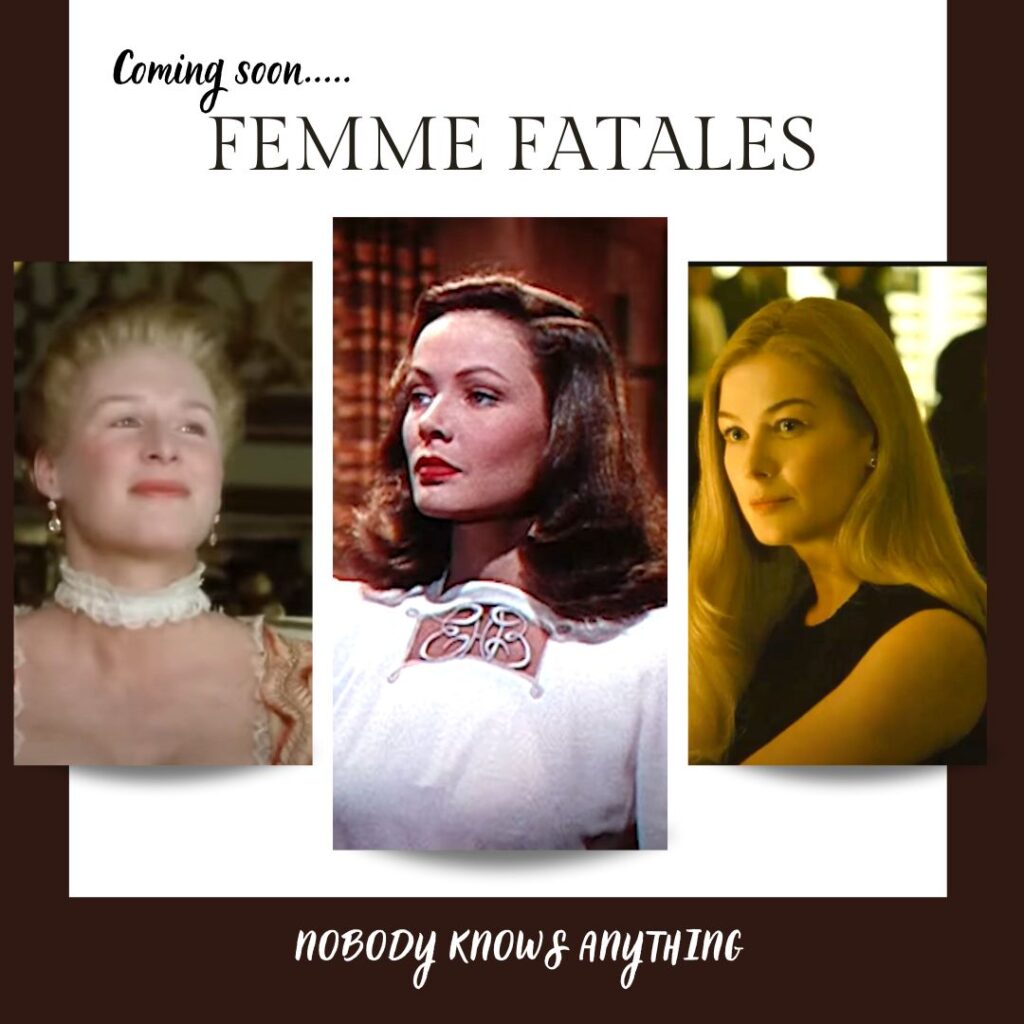Van Heflin’s Surprising First Role
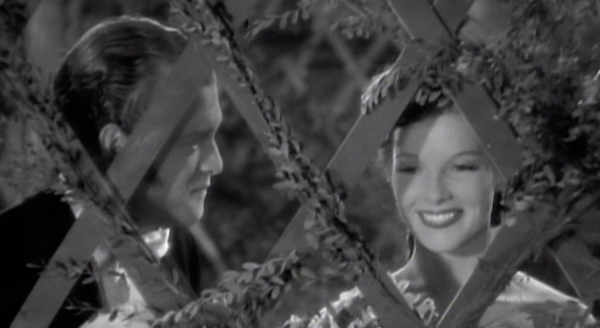
The first time you see Van Heflin (Lord Gerald Waring Gaythorne) in A Woman Rebels (1936), his debut role, you do a double take.
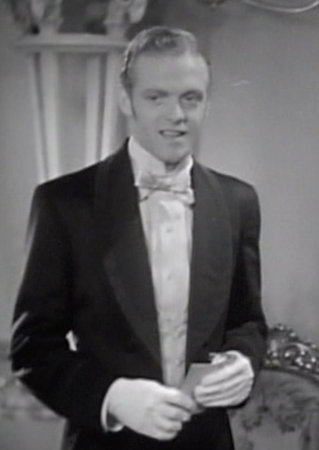
I had to look closer, to make sure it was indeed Van Heflin and not Leslie Howard. A word I never thought I’d apply to him is slight. He’s quite slender in it, but it’s not so much his form as his lack of presence–such a strange first impression of a gravely-voiced, burly sailor-turned actor who is riveting as a farmer in Shane, a suffering family man in 3:10 to Yuma, a powerful adventurer in Green Dolphin Street and hero in The Three Musketeers. The actor who would later fairly sing with physicality and gravitas seems so forgettable in his first moments onscreen, even timid. Luckily, he has a promising second act late in the film.
The story begins with Heflin playing the rake who tempts a Victorian heroine, Pamela Thistlewaite (Katharine Hepburn). We don’t see the charm and sex appeal that are so seductive and sinister in The Prowler and charming in The Strange Love of Martha Ivers. (It seemed fitting that the repeat scene of his seductions is literally Madame Tussauds wax museum.) Later love interest Thomas Lane (Herbert Marshall) comes across as more attractive than Heflin. Read that sentence again. Yeah, that bad.
But late in the film, Lord Gaythorne returns as a bitter middle-aged man who despises his wife (who is not Pamela). And suddenly, in a lounging jacket of all things, you see it: THERE HE IS.
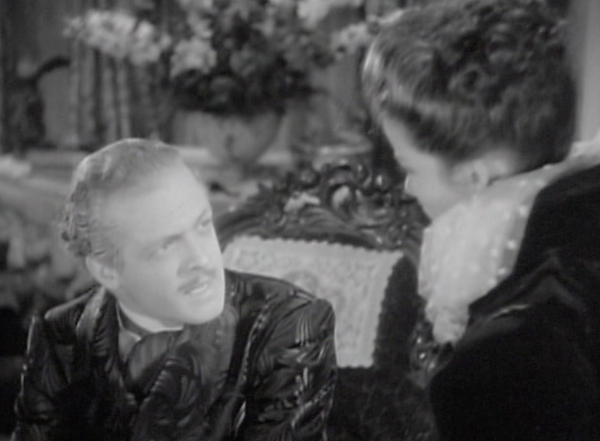
The slow confidence of Heflin’s stroll. HIs measured way of speaking. His intensity as he describes his hatred of his spouse. There is the compelling actor I fell hard for in The Strange Love of Martha Ivers. The always naturalistic performer whose moments onscreen are so believable, visceral and real. The man who isn’t conventionally attractive, yet is so sensual because he’s so confident and alive. The kind of actor he will be is not fully on the screen yet, but you see his promise.
The film itself is not great but ahead of its time, based on a 1930 novel by brave feminist Netta Syrett, who also had feminist artist sisters–or, as they were called then, “new women.” And while everyone around her is lackluster, Katharine Hepburn nails the role.
Pamela has a child out of wedlock, passes it for her sister’s, and then has a stunning career as an outspoken writer/editor speaking out for women’s rights and other issues. In between, she has a funny meet-cute scene with Thomas.
The film and many of the characters (I won’t reveal which) refuse to shame Pamela for her actions, even when her secret threatens her and her daughter’s happiness. The movie falls in the same camp as Hepburn’s other intriguing feminist roles from the 30s, such as Christopher Strong.
The story is unevenly told with some weird plot holes, and you have to suffer through some weak female performances and the aforementioned drags-down-everything Marshall. He doesn’t have quite as sleep-inducing of an effect as George Brent, but close. Sadly, this may be his most charming performance, and yet–look at this expression and tell me you don’t feel like you took a sedative.
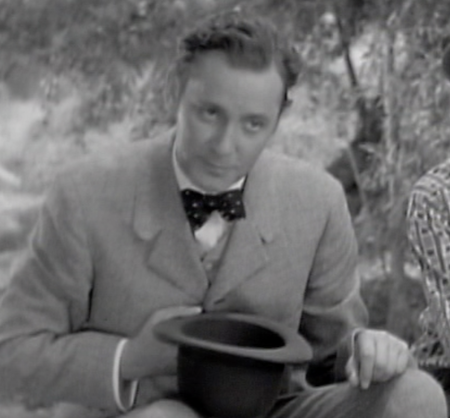
You have to wonder with some smoother plotting and better acting around her whether the film could have really been something, as fascinating and unconventional as it was, instead of yet another bomb that got her in box-office-poison trouble. It doesn’t help that Hepburn has zero chemistry with either of her love interests.
Luckily, there’s enough in Hepburn’s performance and the surprises of the story to keep you watching. And to see that beginning of Heflin’s allure is quite fun. You have to love Hepburn recommending Heflin’s casting after seeing him in a play. (And how much would you have liked to have seen them perform on stage together with his version of the Jimmy Stewart character in The Philadelphia Story?) She knew even in the mid-30s what he had in him. Yet another of the thousand reasons to adore the great Kate.
Check out other striking debuts and final acting performances in the Classic Movie Blog Association’s Screen Debuts and Last Hurrahs blogathon this week!
Oscar Tribute: The Noms They Got Right
I’ve ranted about the films I didn’t watch–and didn’t want to–but three of the films nominated for Oscars this year are great films.
NO spoilers.
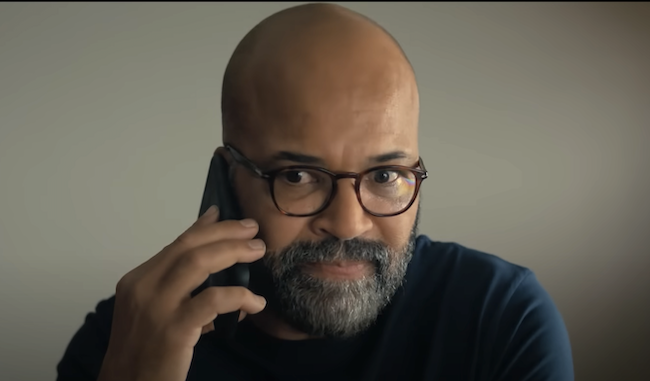
American Fiction. Clever, funny, and original, this satire/dramedy delivers genuine laughs while also addressing heartbreak. We also experience a mature commentary on race we so rarely see on film. Great performances: Jeffery Wright is dead on, nuanced and believable; Issa Rae is fun; and Sterling Brown is compelling. I particularly loved that scene when he dances with his mom. Great acting all through. I still haven’t seen Rustin and suspect Colman Domingo definitely deserves the Oscar. But of those I have seen who are nominated, I wish Wright would get it for his subtle, winning performance. Of course, it won’t happen.
As someone who has been in higher ed, writing, and publishing, I loved the way the film skewered these professions. Clearly, Cord Jefferson knows what he is talking about. I kept wondering how the film would end–there’s no real way to tie this one in a bow without trivializing the problems with racism that are aired, so I liked that Jefferson didn’t take the easy way out. This one is likely to be a film I watch over and over. Obviously, Jefferson should have been up for best director. I suspect of all the films up for Oscars this year, this one will endure the longest.
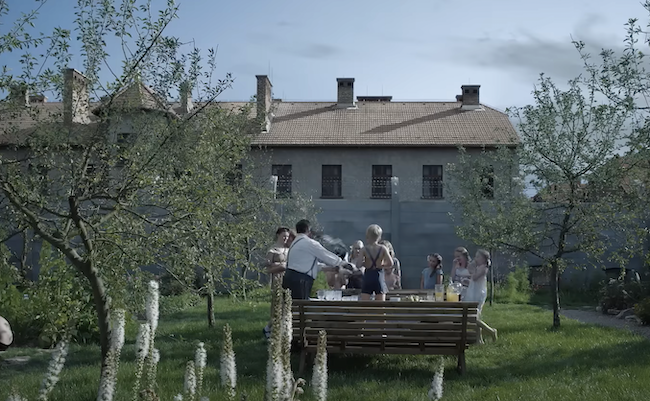
The Zone of Interest. How clever to focus a Holocaust film not on the evil doers’ atrocities, but on the simpler, more everyday trait of turning a blind eye to others’ tragedies. There’s an uneasy feeling as you watch, of how many times you shut off the news, how many times you try not to think about others’ suffering throughout the world. This film, unlike the bloated movies that are nominated for best editing, is VERY well edited, with perfect, often unexpected choices. It’s relentless in its focus and powerful in its impact. It has a documentary feel to it, and I love how true director Jonathan Glazer, made the choice to fictionalize less than the source material, relying on actual letters and histories to authentically capture this horrifying family.

Anatomy of a Fall. First of all, Sandra Hüller deserves an Oscar for this role. What a performance! Many people have said that this film is really about a marriage. And it is–a very complicated, intensely believable marriage. If that were all that this movie did, it would deserve an Oscar nomination. But it does something more. This film is truly about a child and what he lives with, not knowing if his mother might be guilty of killing his father. This is a perspective we too rarely see on film (or even on documentary coverages of crime), and it’s devastatingly captured here. Wow. Also, this kid is something. The director, Justine Triet, definitely deserves this nomination.
And, while I’m here, one final wish denied: Andrew Scott gave a stunning performance in All of Us Strangers. Actually, Claire Foy deserved a nod for that film too. Definitely worth the watch if you can take a little weirdness.
Oscar Rant, Part 3: Flower Moon’s Many Missteps
Spoilers–but not as many as Scorsese’s
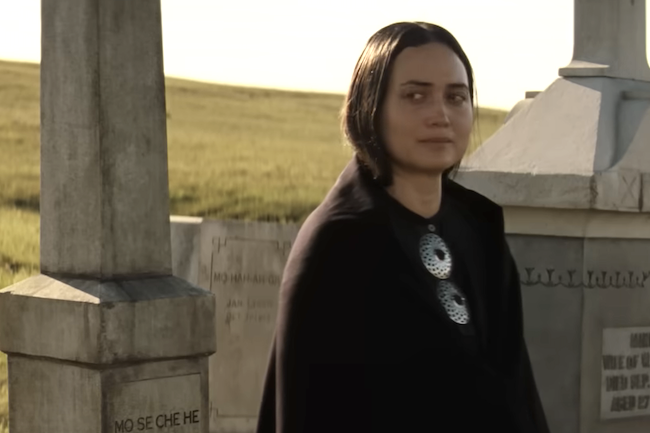
I knew I would struggle to warm to Martin Scorsese’s interpretation of a well-loved book. Killers of the Flower Moon is a heartbreaking, fascinating page turner. And it is a history book. I stayed up till 4 am to finish it. What I didn’t expect to do in watching Scorsese’s film of the same name was flinch. In trying to stay authentic and true to the Osage people, Scorsese walked into one of the oldest stereotypes. And the Academy is about to give his starring actress an Oscar for it.
The dignified, long-suffering man or woman of color is one of those stereotypes Hollywood has struggled to shake. There’s also a smug, self-satisfied attempt to award such films and performances with honors (Green Book, Driving Miss Daisy, The Help). When it comes to a group of people our country systematically oppressed, robbed, and killed–like the Osage and so many other American Indian tribes–granting the characters dignity can feel like a kind of reparation, minor as it may be. But it’s also dehumanizing to reduce a person to such a narrow set of traits.
I understand that Scorsese’s task was not easy. The American historical record is simply more complete when it comes to white men than for anyone else. Author/historian David Grann likely made FBI agent Thomas Bruce White Sr. his central character in part because he had so much information on him. Grann even includes a fascinating later history of his mercy toward prisoners who injured him in a prison break, which helps us understand the kind of man who would risk his life for others. And White was, indeed, a hero, and a fascinating one at that.
I get Scorsese’s attempt to avoid the white savior story he risked writing if White were his lead. But he had a dilemma: What do we know about Mollie Burkhart (Lily Gladstone)? We know she was rich. We know she lost many relatives to murder. That she believed in her husband, Ernest Burkhart (Leonard DiCaprio), far longer than she should have. We know that she was very sick. That’s not enough detail, if she’s your central figure. It was up to Scorsese to breathe life and complexity into her characterization, to make her wholly human in the way our 1920s racist, sexist historical record would not grant her–or lean on the descendants or family members who could tell him more.
Alas, Scorsese’s never been very good at female characters. This is no exception. Besides brief glimpses of a more complex woman during the courtship, he has her either sitting or in a sickbed looking resigned, sad, and stoic for 90% of the film. We don’t even feel the menace or experience her fear as she’s poisoned, as we would for a Alfred Hitchcock heroine, because we have little sense of her inner life.
We don’t get to see a sense of humor or any unique, humanizing quirks–we only know that she suffered. And with Eric Roth as his cowriter, whose credits include Forrest Gump (another film with underdeveloped female characters), what hope did he have of getting it right? Why, oh why, can’t this brilliant man recognize his limitations? There’s nothing wrong with specializing in dark white men as a genre. But this was not the subject matter for that focus. Why not let someone else write the screenplay? An Osage female writer would have been amazing; at the least, Scorsese could have chosen a woman.
Mollie’s is not the only half-baked characterization of the Osage in the film. The subtitles only occasionally translate the Osage language, which is used extensively. Instead, the subtitles spell out something like “speaking in Osage,” which was 1. evident 2. useless 3. distancing. Why not help us know the characters better by having them speak in English if you’re not going to bother to translate? (I kept hoping this was an issue with my streaming service, but I doubt it.) The occasional group scenes with Osage leaders stating the obvious didn’t help.
There was a fascinating real-life federal agent, John Wren (Tatanka Means), the only Native American who’d worked for the bureau by then. He assisted with the investigation and appears briefly in the film, and I kept thinking that Scorsese should have focused the narrative on him. What a fascinating angle that would have been! He was still an outsider to the Osage, but had more of an insider’s angle than the rest of the agents.
Instead, Scorsese doubles down on Leonardo DiCaprio’s Ernest, even minimizing the degree of his crimes by not covering his whole plan (or at least, tacit acceptance of the plan) to include his son and wife in the blow-up-the-house plot. Did he love Mollie? He seemed to in the book–and in how he handled the trial. But many dangerously abusive men have loved the women they attempt to murder. I’m not really interested in getting inside of their heads. Are you?
Also, where’s the excitement? We believe Ernest is pretty innocent for a long while in the book. We don’t know his uncle is a monster. The reveal is breathtaking in the book. Leaving out the suspense is a baffling choice.
It’s a shame to see all the wasted potential here: Robert De Niro is good in it and DiCaprio great (even if they are miscast; De Niro is no cowboy and both are at least two decades too old for their parts). Gladstone is very good with what she had to work with, and captures what we know of Mollie well. I enjoyed her subtlety.
There are so many beautifully shot scenes. That moment right before the bomb was especially powerful, as was the federal agents’ gathering scene. Scorsese shares the history and legal status of the Osage’s rights (or rather, lack of rights) without bogging down the narrative–not an easy thing to do. I thought the best part of the film was the start of the investigation by the private eyes: Whenever Scorsese feels comfortable, he does such great work. I loved how the movie helped me keep the characters straight, something I struggled with in an overpopulated book.
A lesser-known director might not have gotten this important story made into a film; I wanted so much to like it. Scorsese’s earnest attempt in that ending to finally give Mollie her due made me sad; I don’t think he succeeded. But maybe he’ll draw people back to the book, which does. I guess I’ll have to take some satisfaction in that.
Oscar Rant, Part II: Barbie
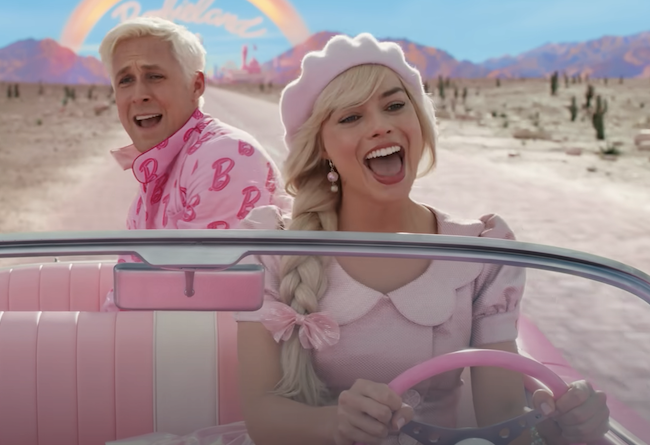
I walked into Barbie with sky-high expectations. I had been tracking the career of its co-screenwriter (and Greta Gerwig’s spouse) Noah Baumbach since 1995’s Kicking and Screaming played on my VCR in college. My roommates and I–and my sister–had fallen deeply and completely into lifelong loyalty with him the moment we pressed play. Baumbach GOT us.
Far more than Reality Bites or other Gen X standards, Kicking and Screaming captured my life and my friends’ and siblings’–not in a literal sense, of course, most of us being female and at large state schools. We were certainly not young, privileged men at a small New England college. But in spirit. He got our reluctance to move on with our lives, our fear of door-to-door salespeople, our reluctance to complain to servers, our laziness (putting a sign stating “broken glass” on the floor instead of cleaning a mess up), all our ridiculous rituals we couldn’t break.
I remember the year I paid roommates for their time if I told a bad story or joke, thanks to the film’s influence. I recall my excitement when The Squid and the Whale (2005) finally showed me others had recognized the writer-director’s brilliance. (Though I don’t think he’s equaled either of those films since; I’m not a huge fan of Marriage Story, for example, and thought Margot at the Wedding cold and half-baked.)
Gerwig won my admiration–though to a lesser extent–with Ladybird and by capturing Little Women‘s Jo so well. She pictured the heroine’s future as Louisa May Alcott would have, had the times she’d lived in been less sexist than they were.
To have THESE TWO creating a funny Barbie movie? I was in–especially with Ryan Gosling starring. I admit I had some apprehension, given Baumbach’s caving to Wes Anderson in The Life Aquatic with Steve Zissou. (Where WAS he in that?)
There is A LOT to like about Barbie: The opening scene is brilliant–& the first half is so funny. “Beach” as Ken’s theme for life and his joy at realizing he’s the beneficiary of the patriarchy are so amazing. The costumes and production design are so well done, and Kate McKinnon’s Weird Barbie is an inspiration.
But then, there’s that by-the-book speech delivered by America Ferrara and the muddled second half. Until the ending, which I loved, the film lost its focus.
I don’t question the lack of an Oscar nomination for Margot Robbie. Best actor/actress awards rarely go to men or women in comedies. (It’s all about supporting with comedy nods; this year’s two best actor comedy nods are the exception, not the rule, and both men are starring in dramedies, not comedies, like Barbie.) In addition, the male characters in this film are better written and thus the men have better roles, which is hardly surprising, since Noah Baumbach, the better writer of the pair, has been perfecting this kind of arrested-development male (aka, Ken) since Skippy of Kicking and Screaming. (Actually, arrested-development male describes nearly every character in that film.)
I do think–given its innovative spirit and how much it had to offer–Barbie deserved to be in the best picture mix, especially with undeserving films like The Holdovers, Past Lives, and Oppenheimer on the roster.
Did Gerwig deserve an Oscar nomination for director? It depends on how you look at it. If I ask, “Do I think this film, with its muddled second half, deserves a directing Oscar nomination?” I would answer no. But does she deserve it MORE than Christopher Nolan for his poorly developed, uninspiring borefest? You better believe it.
In the end, I realize Gerwig just tried to please too many audiences with Barbie. And given that, I’m grateful for what I got, and for the joy I felt in wearing pink with Barbie-loving peers at the theater (my first theater return post-COVID). But I hope she and her spouse streamline their styles a bit more because what amazing potential that duo has. We’ve seen what they can do (in Barbie) if they get it half-right. Can you imagine what they can accomplish, once they get it right?
My Oscar Rant, Part 1: Snark
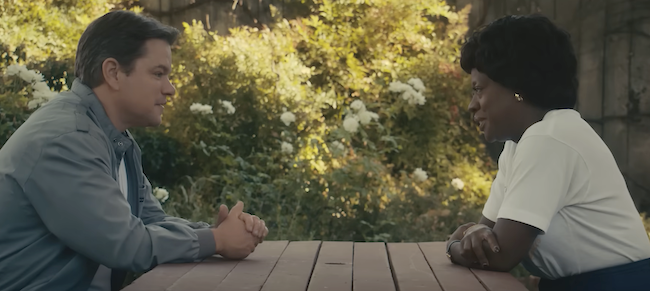
It’s that time again–my chance to rant about the films that shouldn’t have been nominated and moan about better films that weren’t. Next time, I’ll discuss Oscar nominees I loved or at least liked. But for this post, I’m going to embrace the snark.
Undeserving Nominations
Past Lives. If the little boy who used to chase me down after we raced on our big wheels and then kiss me were to re-enter my life 20 years later, would that have been a meaningful, maybe-romance? No. Neither was this.
Oppenheimer. This film has far less to say about our past than an episode of Drunk History. Here are the not-so-insightful themes I gleaned after three hours: dropping bombs leads to regret, and politicians are political. Calling a man a genius ten times in the first hour without showing a single scene of what made him so—or what made him charismatic, a leader or interesting—is not characterization. Jumping in time without reason is not artful; it’s confusing. Usually strong actors mimicking, but not inhabiting real-life characters is painful to watch (Robert Downey Jr. being the exception). Dismissing the reflective president who had to decide whether to drop the bomb in a five-minute, misleading scene is irresponsible. If this film wins, the producers better thank Barbie because that’s the only reason Academy voters viewed it. Give it a year, and none of them will remember watching it. Christopher Nolan is too talented to have created something this bad.
The Holdovers. Mediocre and an hour too long. Solid, but not standout acting? Yes. Occasional clever, funny moments? Yes. But generally lazy writing–a teacher who is a hard grader must be a jerk, all students hate their studies, a teacher has to be self-sacrificial to earn respect. Any of you heard all this nonsense before? Me too. Best moment: the kid barely thanks him. That scene was real and funny, capturing what it’s like to be a young, careless teen (tell me you don’t see your young self in that moment); I only wish there had been more moments like it.
Overlooked Gems & Performances
Air. The most entertaining film of the year. Perfect cast, great writing, smart editing. Every moment counted. Zero nominations. The lack of an editing nomination hurts most; three too-long movies are nominated for best editing. Academy voters apparently don’t appreciate the most difficult role of an editor: cutting.
Eileen. An eerie, truly original mystery. Strong performances from the two lead actresses, a memorable one from a supporting (always reliable) character actor and a brilliant one from a supporting actress. Great editing choices for the adaptation of the book, including some difficult cuts by the novel’s author and screenplay co-writer. Zero nominations.
Blackberry. Clever take on the difficulty of running a business with creative, nerdy types. Where is Glenn Howerton’s best supporting actor nomination, I ask you? He plays an amazing villain; his comic timing is unmatched, and his portrayal is nuanced, believable and always surprising. Oh, how much all those award-granting types underestimate anyone involved in It’s Always Sunny in Philadelphia….
,
Would Rather Pluck My Eyebrows than Watch
Maestro. I am done with movies more interested in artists’ romances than their work. (I’m looking at you, Walk the Line, Bohemian Rhapsody, Blonde.) John Carney, please direct a biopic so that I can again enjoy a film about an artist. Give me a Once (2007) or Begin Again (2013) based on a true story, please.
Poor Things. I can’t take this director anymore. My sister and I refer to his film The Lobster in verb form: Lobstering is when you recommend a film you can’t stand to someone as a joke. She lobstered me with The Judge (2014); I lobstered a mutual friend with The Shape of Water (2017). I didn’t despise The Lobster, as my sister did. The Favourite (2018) was alright (likely only because Nicholas Hoult excels in odd roles). But Yorgos Lanthimos has a knack for squandering a fascinating premise with meaningless grossness or weirdness, and Poor Things looks like he’s upped the ante on that trend. I’m out.
So there you have it. Stay tuned for next time, when I will be far less harsh, but no less opinionated.
The 10 Funniest Xmas Movies
In no particular order except for #1, my favorite to rewatch:
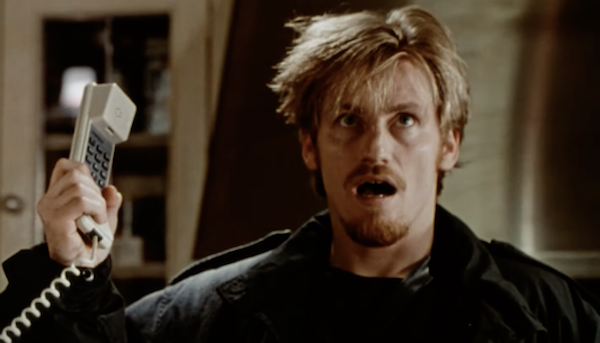
1. The Ref (1994). The non-sentimental xmas movie I love most. The real question is who is the funniest here: Denis Leary, who has taken a family hostage? Judy Davis and Kevin Spacey, as The War-of-the-Roses-worthy combatants who make us feel sorry for the criminal? Christine Baranski as the outrageously funny sister-in-law? Or Glynis Johns, the mother-in-law from hell?
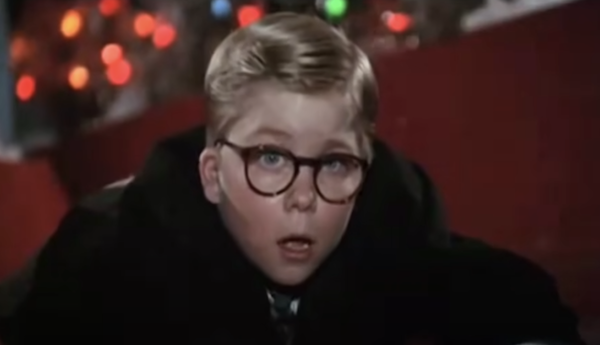
2. A Christmas Story (1983). It’s brilliant. It’s beloved. And it’s a great translation of a witty author’s style (Jean Shepherd) with excellent performances all round.
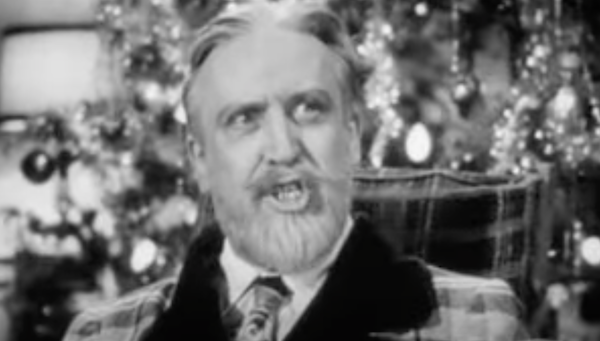
3. The Man Who Came to Dinner (1942). A grumpy, hilarious, ba-humbug house guest (Monty Woolley) treating his host family like serfs. Shenanigans with Ann Sheridan. Bette Davis playing a normal woman and still enjoying herself. Get this set of writers: Julius and Philip Epstein (yes, of Casablanca fame) adapting a play by George Kaufman and Moss Hart. What’s not to love?
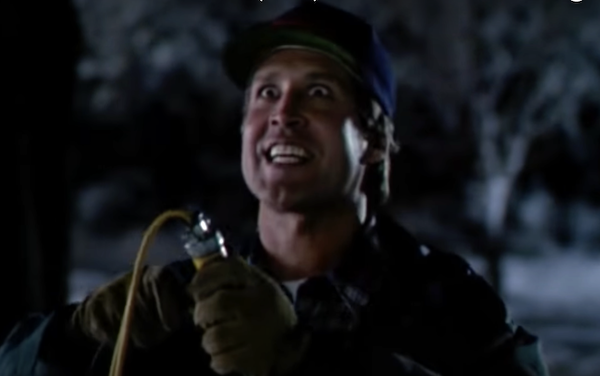
4. National Lampoon’s Christmas Vacation (1989). I’m a huge fan of the Griswalds. Clark’s (Chevy Chase’s) xmas lights alone keep me in stitches.

5. Bad Santa (2003). Because Billy Bob Thornton does surly so very well.
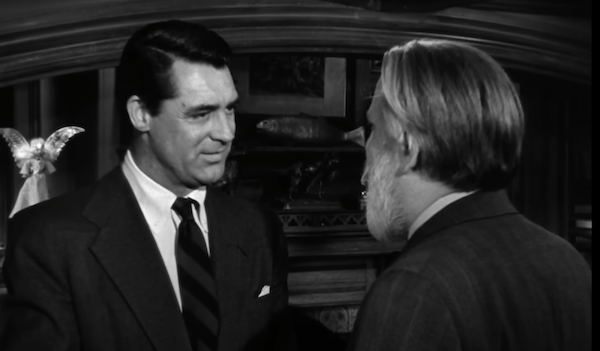
6. The Bishop’s Wife (1947). Cary Grant plays an angel as well as Thornton plays a grump. The angel’s methods are so charming and funny. My favorite scenes include watching everyone (realistically) falling over themselves in Grant’s presence, and his magic liquor-filling skills with Monty Woolley.
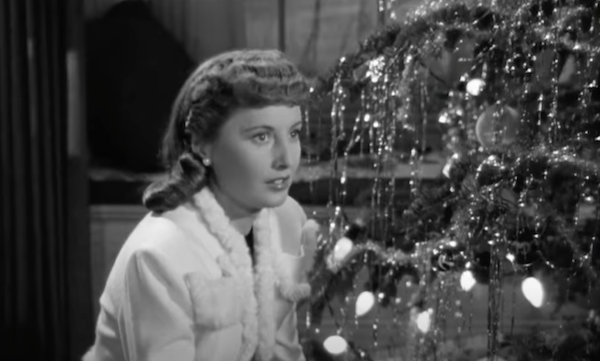
7. Christmas in Connecticut (1945). We have a double-charm offensive in Barbara Stanwyck and S. Z. Sakall (aka Cuddles). And Sydney Greenstreet adds some nice bluster. I could lose the smarmy love interest (Dennis Morgan), but who cares? Give me Stanwyck tossing pancakes with her eyes shut every time.
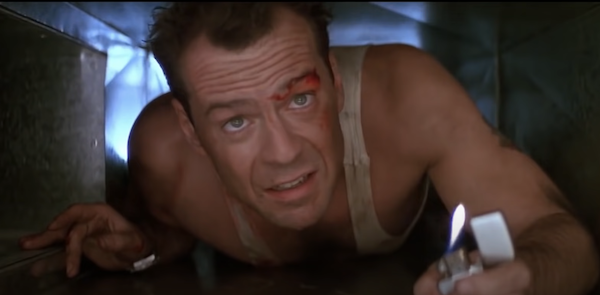
8. Die Hard (1988). As a Gen Xer, I couldn’t leave this out. Also, I adore Bruce Willis’s humor.
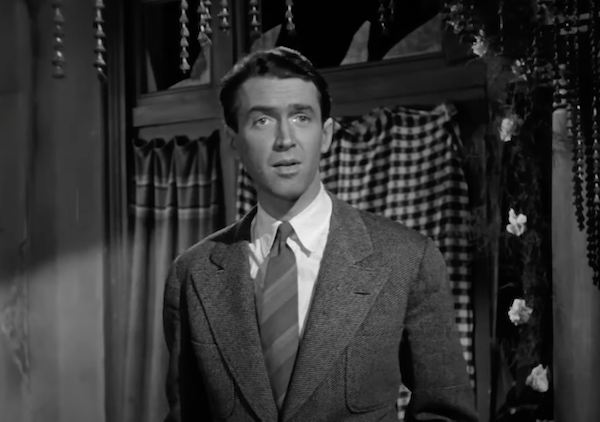
9. It’s a Wonderful Life (1946). Nearly a perfect film. As many heartrending as comedic scenes, but funny all the same.
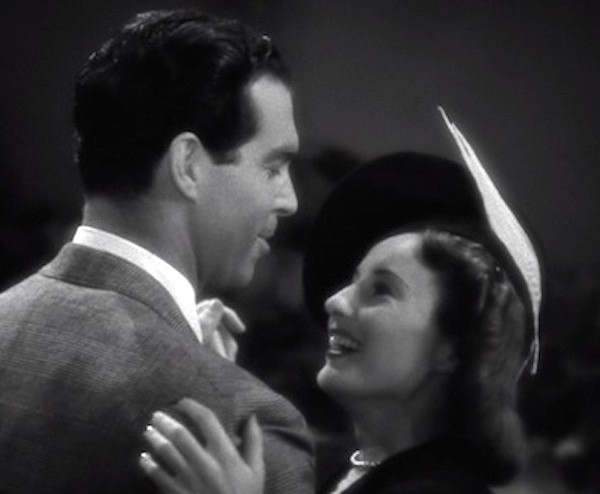
10. Remember the Night (1940). Another dramedy with an empathetic heart that doesn’t sell out. Plus, Preston Sturges’s writing and dynamic duo Barbara Stanwyck and Fred MacMurray without a corpse.
Almost Made the Cut: Elf (2003). Cute, but not an annual viewing for me.
Bonus: Home for the Holidays (1995). A Christmas-vibey Thanksgiving movie, so it counts. Hilarious and true family dynamics, and Holly Hunter at her most adorable.
The Charming Shop Around the Corner
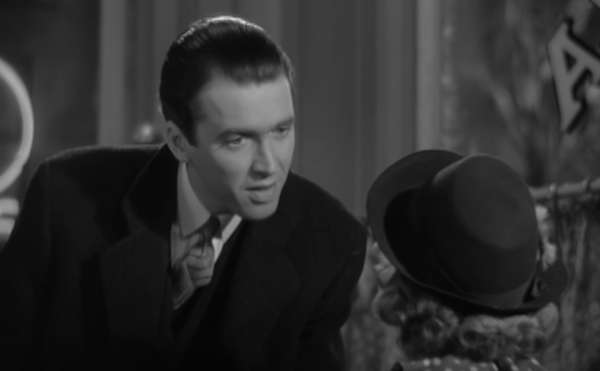
Last month, I wrote about Jimmy Stewart playing a monster in Vertigo. It seems only fair that I cover one of his gentlest roles next, that of lovelorn salesman Alfred Kralik in holiday favorite The Shop Around the Corner (1940). For those unfamiliar with the film, it was later remade as the horrible You’ve Got Mail (1998), which I despised only slightly less than the man behind me in the theater, who complained, “You’ve got to be kidding me” to his girlfriend after it ended.
The Shop Around the Corner is superior to its remake for many reasons. Since this is a Ernst Lubitsch film, there’s a sophisticated touch to the little dramedy throughout; the plot is nuanced, funny, heartwarming, and occasionally heartbreaking.
The hardworking salespeople of the little Hungarian gift store are likable and driven and funny and loyal to one another.
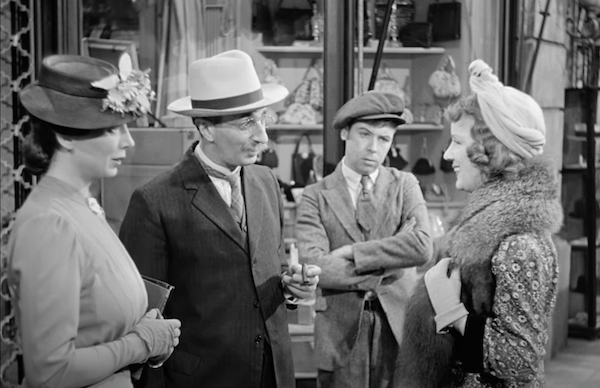
They’re also struggling to get by, as in the moment when Alfred asks his colleague Pirovitch (Felix Bressart) if he’s ever gotten a bonus and gets a wistful “…once…” in response. The film often reminds me of workplace comedies, especially Brooklyn 99 and The Office, because the little family of coworkers commit to their work and vie for status with their boss. Shop experiences take up far more time than the romance.
The irascible, sensitive owner, Hugo Matuschek (Frank Morgan), is entertaining.
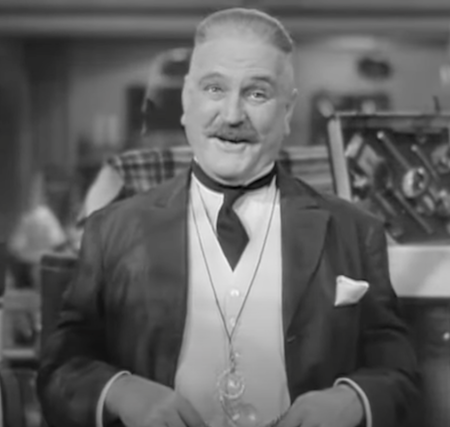
One of my favorite moments is watching Pirovitch dart out of sight when Hugo, trying to explain a specialty cigarette box, says to Felix’s colleagues, “All I want is your honest opinion.” We soon find out just how unwise it is to express your feelings to this particular boss.
Meanwhile, Alfred, the hero (Stewart), is writing love letters to an unknown respondent, who happens to be Klara (Margaret Sullavan), the prickly salesgirl the shop just hired.
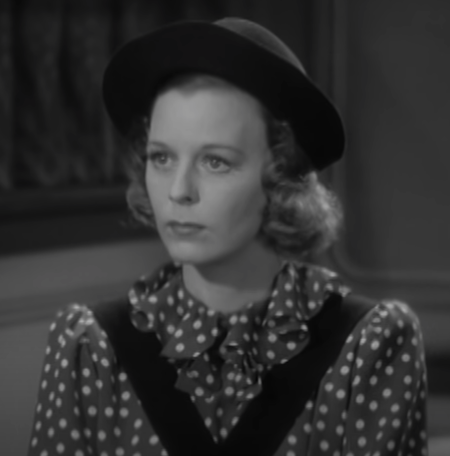
She, unaware he’s her pen pal, treats Alfred with disdain. Her attitude is partially the result of misunderstandings, but also because she’s a snob who sneers at him for his job. Even though she can be conniving and even cruel, there’s something so sad about the little airs she puts on, and about how fragile her thin veneer of confidence is.
And what a savvy salesgirl! She actually convinces a customer the cigarette box the owner loves, with its terrible music, is actually a candy box that is intentionally annoying so that it prevents overindulgence. Brilliant. I can’t help but root for her even if I think Alfred is too good for her. And their dialogue is so funny, clever, and entertaining.
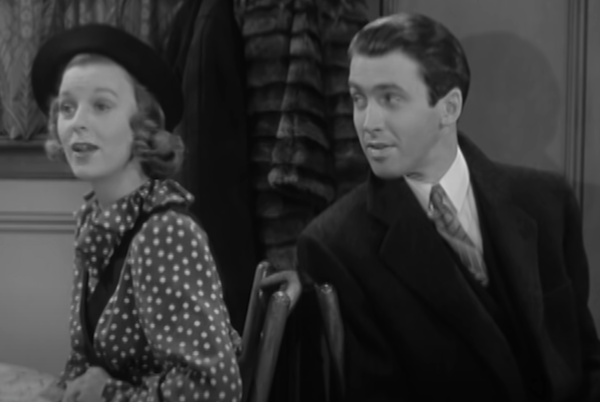
What a doll Alfred is. He’s so tender toward Klara once he knows who she is and is sympathetic toward the owner, who wrongs him. He bears with both of their treatment with a warmth and understanding that reveal he’s made of much finer stuff than either of them. He’s also so modest despite being the most admired worker in the shop. I love the moment he fears his pen pal will be beautiful. “Well not too beautiful, no . . . what chance does a fellow like me..?….just a lovely average girl, that’s all I want.”
Comic relief Pepi Katona (William Tracy), the confident delivery boy, doesn’t appear much until the second half, but what a joy he is every time he shows up. I particularly enjoy him teasing a doctor and the new delivery boy. He and Pirovitch are both by turns funny and warm–an unusual combination for a comedy:
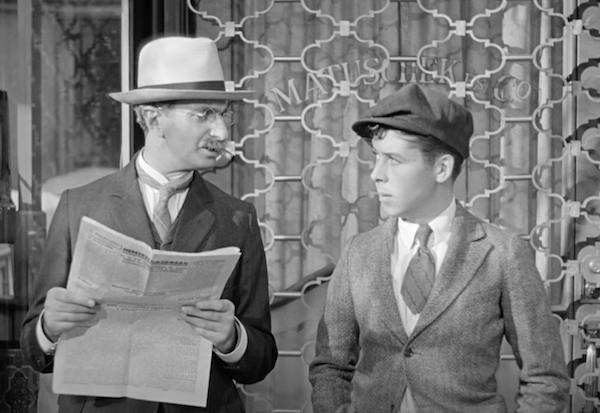
You’ve Got Mail, in contrast, dials up the time spent on the romance, eliminates any humor, makes the modest hero (Tom Hanks) a big box store magnate and forces the heroine (Meg Ryan) to be bop-her-head cutesy and snarky at the same time. I’d tell you more, but I’ve blocked the rest from my memory.
Do yourself a favor, and watch The Shop Around the Corner instead.
Vertigo’s Beast: Jimmy Stewart (1958)
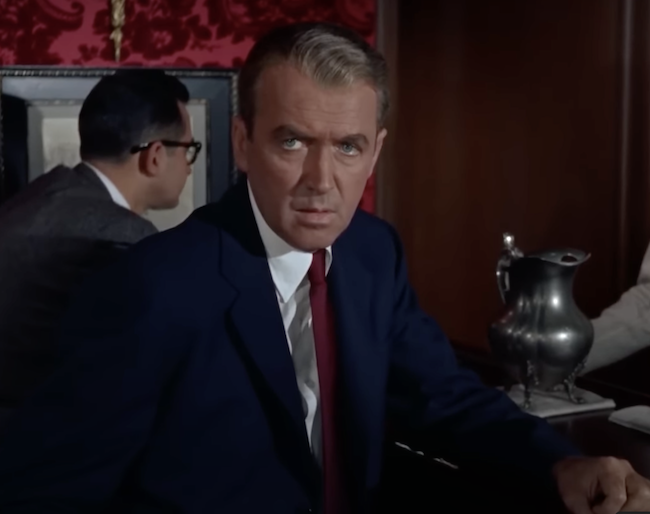
Spoilers abound.
I love a good casting against type. That’s why Scottie in Vertigo is so disarming: It’s creepy to find America’s aw-shucks sweetheart, Jimmy Stewart, playing a villain.
Of course, not all of Stewart’s parts are sugary; he was a murderer in The Thin Man series. He was a professor with disturbing philosophical beliefs in Rope. But Stewart plays innocence beautifully and so memorably—as in his iconic performance in Mr. Smith Goes to Washington, or in his role opposite an imagined rabbit in Harvey. It’s in these parts—and as the lovely George Bailey in It’s a Wonderful Life—that Stewart makes the most enduring impression on viewers.
That’s why when Scottie begins to act unhinged in Vertigo, the audience gives him the benefit of the doubt, and can understand why his loves do too.
He’s just in grief, we think. It must be awful to blame yourself for your coworker’s death.
He’s just experiencing PTSD.
I know he must be a good guy…He’s George Bailey!
Scottie seems to be a good guy at first. He’s a charming, funny friend to Midge (Barbara Bel Geddes), who secretly loves him. He’s willing to help desperate college friend, Gavin (Tom Helmore). Gavin claims his wife, Madeleine, is possessed by a sad ghost and employs Scottie to trail and protect her from self-harm.
But right away, Scottie’s actions are suspect. He falls for Gavin’s wife. I mean, it’s hard to blame him. Look at her entrance:
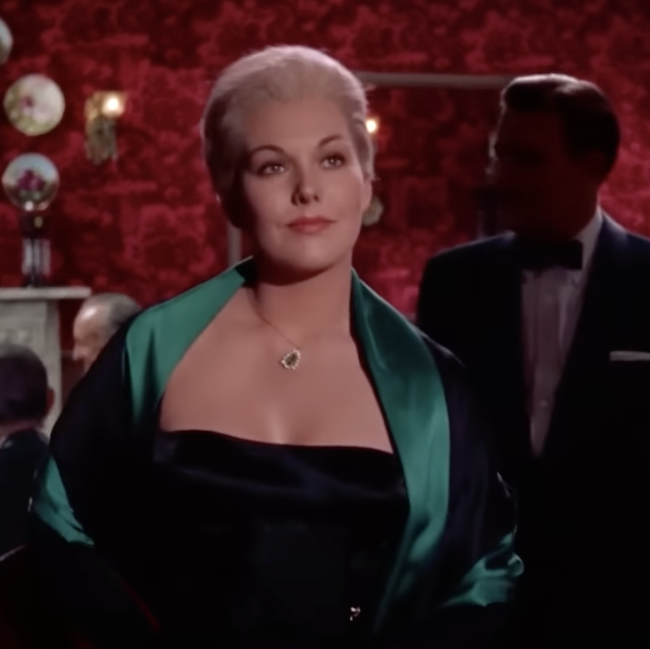
She somehow looks even better in a rather drab grey suit:
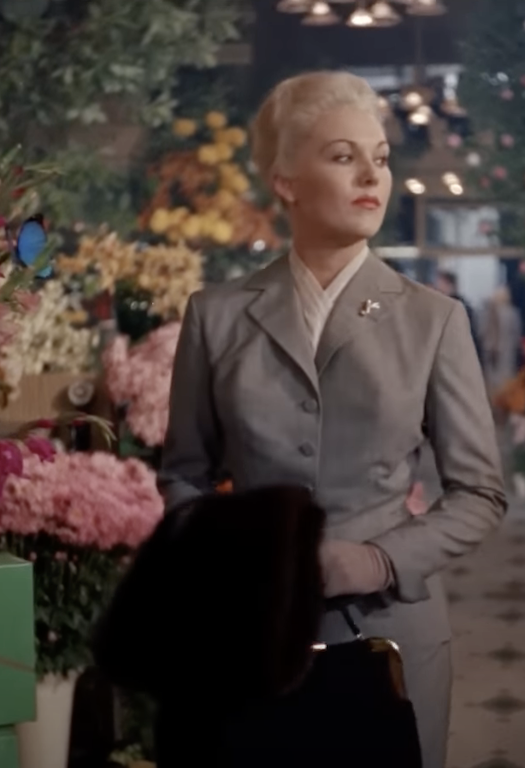
Still, Scottie didn’t have to act on his attraction. He breaches friendship and professional ethics by hitting on Madeleine. Knowing—as we viewers do by the end—that Gavin planned it that way doesn’t change anything.
For a brief moment, Scottie and Madeleine seem to enjoy each other’s company, but the happiness is short lived.
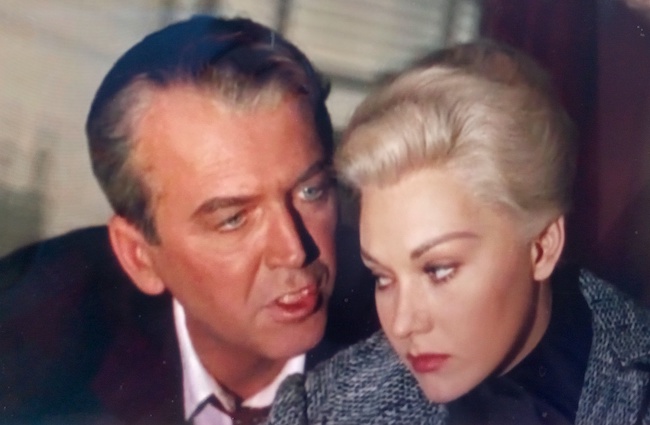
Soon, things go terribly wrong for Scottie. Madeleine leads Scottie to a tower. His vertigo prevents him from following her, and he thinks he sees her leap to her death. What he really sees is the real Madeleine (whom he never met) thrown from a tower, while fake Madeleine, whom he’s been trailing (Novak), hides until he leaves.
Once Scottie loses fake-Madeleine to supposed suicide, we’ve forgiven him for any bad behavior. After all, look at his despair!
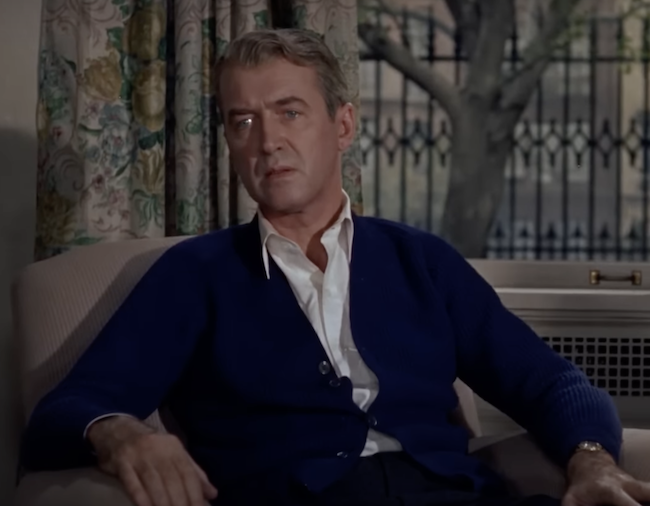
It’s what he does with that despair that makes Scottie a villain.
First, he follows a strange woman, Judy, to her apartment door.
Let’s start there. Stalking a woman because she looks like your lost love is deranged. Her hostile response to his knock is valid—even if she weren’t the fake Madeleine we know her to be.
Of course, Judy is hardly innocent. She was involved in a murder plot that ruined Scottie’s life. Despite her complicity, we feel for her. She’s so remorseful and almost as self-destructive as pretend Madeleine: who after such a perfect crime falls for her own mark? (Gavin would have killed her had he thought her capable of it.)
And Scottie? Had Scottie believed Judy guilty, his cruel behavior toward her would be somewhat justified. But Scottie believes her innocent. He’s an emotionally abusive boyfriend who feels ZERO guilt for expecting irrational sacrifices from his lover.
His next disturbing act post-stalking is to force Judy to wear the same grey suit as his dead love. When Judy realizes what he’s doing, she protests.
His justification for distressing her is jaw-droppingly awful: “Judy, Judy, it can’t make that much difference to you…. Judy, do this for me.”
I admit. I laughed aloud when I heard these words this time around. Can’t make any difference to YOU, what you wear? Yeah, nothing personal there.
“I don’t like it,” she says of the suit he offers her.
“We’ll take it,” he responds to the saleswoman.
Judy responds by laying her head on a desk in misery. Scottie’s answer? Ply her with liquor.
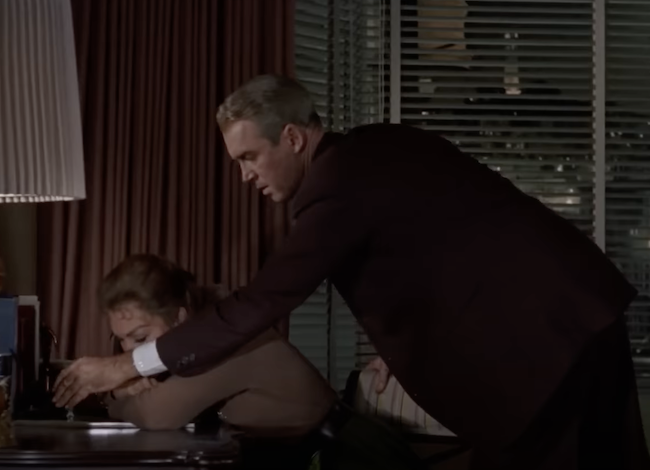
She asks why he’s terrorizing her and threatens to leave but fears he wouldn’t let her. Sadly, she wouldn’t leave anyway: she wants to remain with her abuser.
This is when we wish Judy’s friends from an earlier scene would return.
RUN, HONEY. RUN!!!!!!
Scottie then says his last few days with her (and yes, he starts on this nonsense just DAYS after they get together) are the first happy ones in a year.
She says that’s only because she reminds him of his dead love. What, besides that, does he like about her?
He replies, “It’s you too. There’s something in you that…” He starts to touch her, then WALKS AWAY without finishing the thought. Because she’s right: he only likes her for her resemblance to Madeleine.
“You don’t even want to touch me,” she says.
“Yes, yes I do.”
Let it be said that there’s no evidence to back his words.
“Couldn’t you like me, just me, the way I am?” Judy cries.
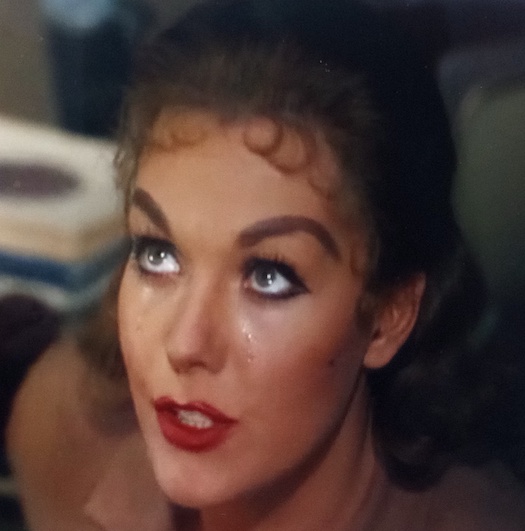
Now this is some heartbreaking stuff. But it gets worse:
“When we first started out,” Judy says, “it was so good, w-we had fun. And then you started in on the clothes, well, I’ll wear the darn clothes, if you want me too, if, if you’ll just, just like me.”
What is his response to this pathetic concession?
“The color of your hair.”
Because of course, he wants to change her brown hair into Madeleine’s blonde locks too.
“Oh no!” she says and walks away.
“Judy, please, it can’t matter to you.”
Again, as a woman, I must say, the color of one’s hair is QUITE PERSONAL.
But Judy is now ignoring red flags as tall as the sequoias she visited with him (while acting as Madeleine): “If…If I let you change me, will that do it? If I do what you tell me, will you love me?”
“Yes, yes,” he says.
“Then I’ll do it. I don’t care anymore about me.”
Her sad words don’t worry him, or even make him feel remorse. Because she caved to his senseless demands, he is finally affectionate, nuzzling her, “Here, go on, let’s sit by the fire,” and he takes out a cushion for her.
And so Judy makes the full transformation into his lost love for him.
We hear the elevator after the full makeover, watch her move toward him. She enters the room without a word, hesitant. She’s afraid. She puts her purse down.
“Well?” she says, turning toward him.
It’s clear that Judy is expressing one tiny rebellion, one last trace of self-respect. She comes back with her hair down, not up, like Madeleine’s. In every other way, she’s the dead woman’s twin.
“It should be back from your face and pinned at the neck,” says Scottie, “I told her [the beautician] that, I told you that.”
Wow.
“We tried it. It just didn’t seem to suit me,” she says, combing her hair nervously.
He grabs her hair.
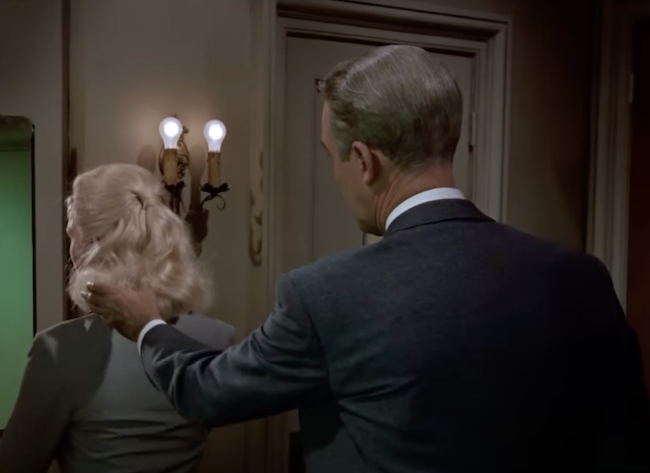
She turns to face him.
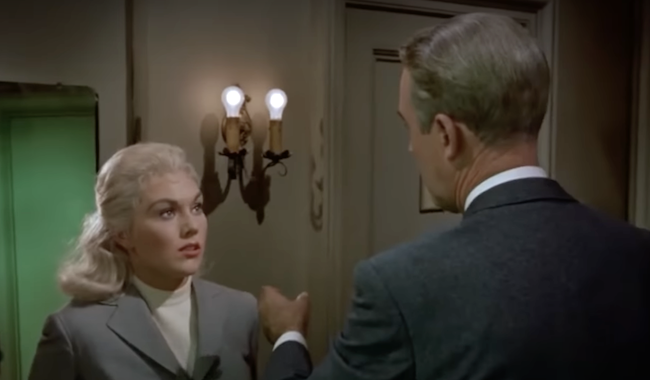
“Please, Judy,” he begs.
She walks in other room, fixes it for him.
He sees her in fog as she somnolently walks toward him. She half-smiles, then smiles fully as she sees his tears.
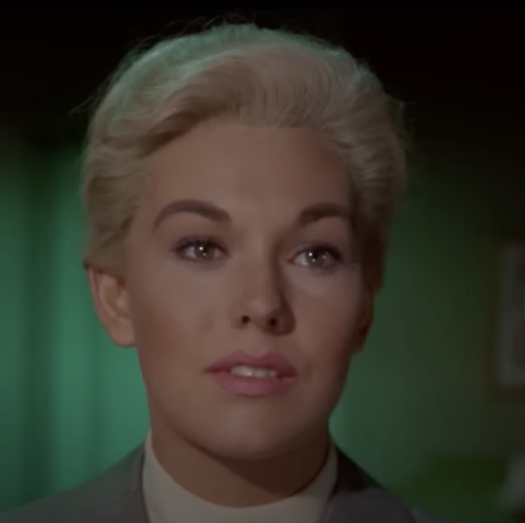
Being the toxic man he is, he gives her a REAL kiss. After all, she’s now actually BECOME his dead love for him. Because that’s healthy.
In the next scene, we see them playful and flirty with each other—an echo of the earlier conversation with Midge, but with heat.
“Hello, my love. Like me?” She smiles and then spins for him in a pretty dress, her air and voice confident, easygoing—the tone of a well-loved woman. This is the first genuine smile we’ve seen from Kim Novak in the film. (Scary, right?)
“Mmmm,” he responds.
“Is that the best you can do?”
“Come here.”
“Oh no, you’ll muss me.”
“Well, that’s what I had in mind. Now come here.”
He then spots Madeleine’s necklace on her neck and knows Judy’s guilt. He says cryptically, “One final thing I have to do, and then I’ll be free of the past.”
Scottie drives Judy to Madeleine’s supposed suicide tower. He forces her up the stairs and through the trap door.
Then he attacks and half-strangles her, saying, “He [Gavin] made you over, didn’t he? He made you over just like I made you over, only better. Not only the clothes and the hair, but the looks and the manner and the words and those beautiful, phony trances….Did he train you, did he rehearse you, did he tell you exactly what to do, what to say? You were a very apt pupil too, weren’t you?”
It’s easy to read these words on multiple levels. Yes, he’s angry she deceived him and furious she’s taken advantage of his affliction. But he’s also angry that she’s had a former lover, Gavin. And he’s angry that Gavin was a better Geppetto than he was.
Scottie’s physical actions are brutal now that he knows what Judy’s done, but those actions are just an escalation of earlier ones.
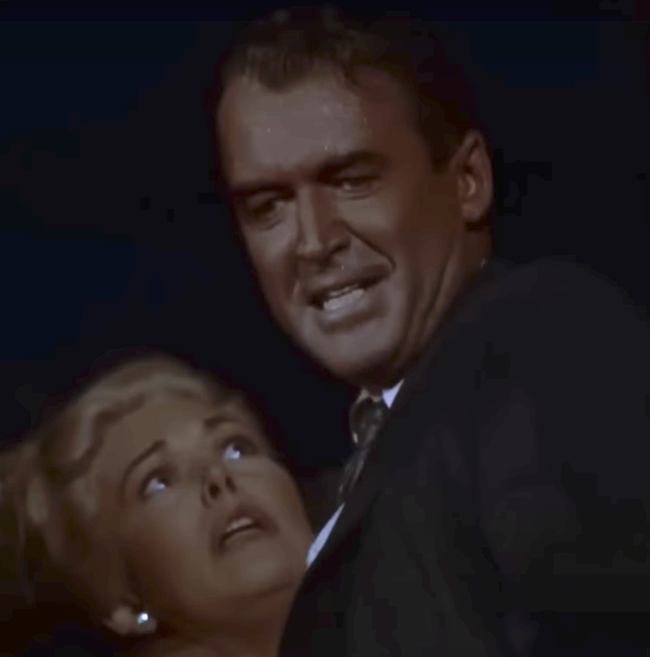
Note how many times he pins Judy’s arms throughout this story, how many times he forces her from behind—whether it is to wear the clothes he wants, or to go up to a tower where her death awaits. Observe how many times she looks fearful, hesitant, unsure of herself. She is a victim of his cruelty, just as he has been a victim of the murderous plot.
Jimmy Stewart’s Scottie is the definition of a boyfriend who should make a woman run. If he doesn’t give you the heebie-jeebies in Vertigo, you’re just not paying attention.
This post is part of the beast blogathon from the Classic Movie Blog Association. See great entries here!
Casting The Thin Man Remake
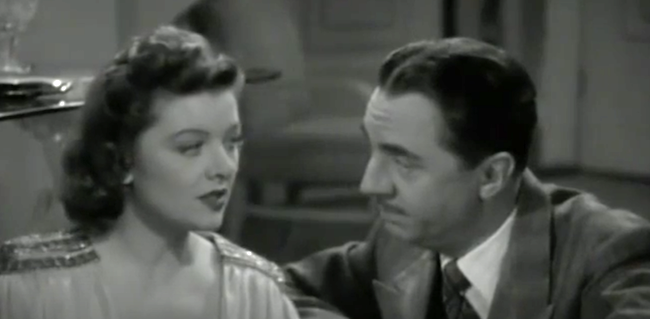
Brad Pitt and Margot Robbie are discussing a remake of The Thin Man, which has its longtime fans abuzz. While many ingredients are essential to an effective remake, the most important step is to take inspiration from the original pairing–cast the unexpected. After all, William Powell and Myrna Loy were dramatic actors. Manhattan Melodrama Director W.S. Van Dyke saw the two teasing each other on the set of his film and made a gamble: pair these two up in a rom-com/mystery, and see what happens.
What happened was comedy magic, the original film leading to FIVE sequels and the names Nick and Nora becoming shorthand for cool couple–even today. Who could be wittier, more stylish, more fun, more enviable than these two in action? No wonder Loy and Powell would ultimately be cast together in thirteen films.
So, of course, I’m thinking of what my casting would be. I wouldn’t object to Pitt and Robbie. Both have comedic talents, and even the age difference matches the source material (a book that is worth many rereads). But I want to spread my net a little wider. I love stories of actors playing unexpected parts: TV actress Mary Tyler Moore blowing us all away in Ordinary People, Malcolm in the Middle lead Bryan Cranston winning all the Emmys for the bleak Breaking Bad, the numerous dramatic actors chosen for comedy masterpiece Airplane!
Here are some possibilities I see. I’m borrowing people I love from TV and drama for this classic remake. I’m eager to hear your unexpected choices too….
William Jackson Harper & Awkwafina
Harper was a revelation as Chidi in The Good Place.

I could watch his peeps-in-the-chili scene all day. I found Crazy Rich Asians nearly as boring as The Kardashians, but Awkwafina? Wow. More Awkwafina for me, please. Can’t wait to watch the film with her and Sandra Oh, Quiz Lady.

Harper and Awkwafina both have a mixture of dry humor, unexpected timing, and perfect reaction shots in their repertoire. To see them play together would be a joy.
Jodie Comer & Aldis Hodge
Comer is a rising star for her dramas, an Emmy and Tony winner with a likely Oscar nod for The Bikeriders. But Killing Eve fans are eager to see her in a comedy given her stunningly funny facial expressions (and how long she holds them!) And wow, can that woman deliver a sarcastic line!

As for Hodge, he isn’t a big name yet since he rarely plays the starring role. Straight Outta Compton, Clemency, and One Night in Miami have demonstrated his dramatic skills, but we Leverage fans have seen this guy be FUNNY.
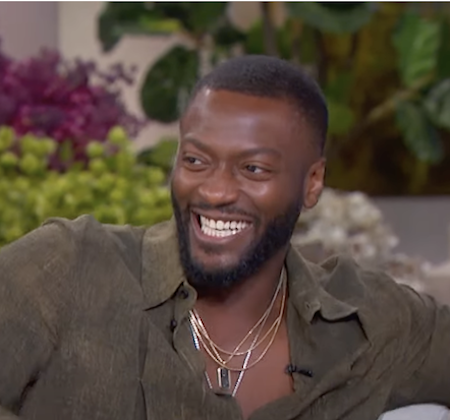
He’s good at dead pan AND high-energy freakouts (Nicholas Cage style). I think I’d give Comer the Nick role, and Hodge the Nora role. He’s especially funny when he grumbles under his breath, which would be a fine accompaniment to Comer’s detective antics. (We need Comer to have a super-showy part.)
Michael B. Jordan & Annie Murphy
I’ve been a Jordan fan since his indelible role as Wallace in The Wire. He has PRESENCE.
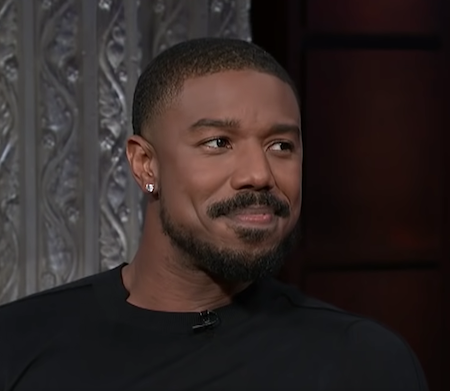
I can see him at ease in a comedic role like Nick’s, a part that calls for being suave as well as funny. Sure, he’s done little to prove his comedy chops yet, but the complexity of his performances convinces me that comic mastery is in his wheelhouse. And he can be quite funny in interviews.
Annie Murphy hasn’t yet found a role to equal her star-making turn in Schitt’s Creek.
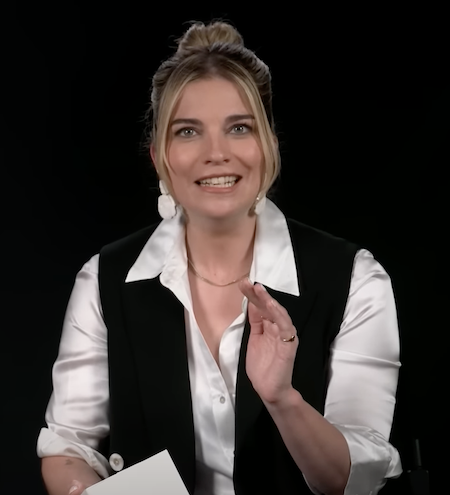
Her offbeat timing, slapstick gifts, and talent for improvisation (“A Little Bit Alexis” alone) would help her improve on the script. Given her generosity as an actress (she always highlights her partner’s skills), I think she’d help Jordan develop his comic potential.
Catherine O’Hara & Ted Danson
These humorous powerhouses are old for the parts, so it’s unlikely they’d win them. But can you imagine watching their combined talents in action? Danson would play a mean Nick, wouldn’t he? So debonair, and so funny.
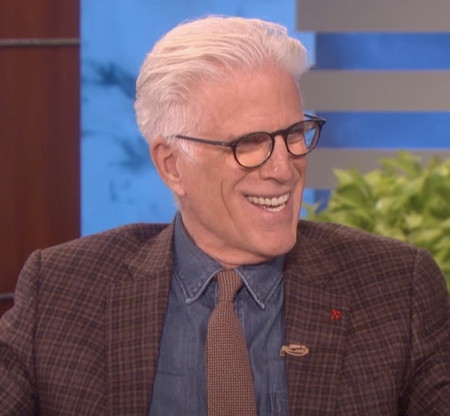
And O’Hara is so used to acting as a team–so good at playing off someone while holding her own.

I can dream….
Kristen Bell & Adam Scott

Kristen Bell has already proven her ability to play a witty sleuth in Veronica Mars, and Adam Scott has always been a great straight man. These two have impressive chemistry in Party Down and The Good Place. Let’s give them a movie that’s worthy of them. Watch their mutual self-deprecation when she interviews him on Jimmy Kimmel Live.
Tatiana Maslany & Stephanie Beatriz
Anyone who has seen Maslany in Orphan Black knows that she can do anything.

The woman played five major clones in Orphan Black—and you could tell when one was pretending to be the other. She has a sense for the physical ticks of each character, their intonations, their accents. (In total, her clones were in the double digits.) She’d be an ideal actress for a con artist or spy role, but it would be entertaining to see her in a traditional detective part.
Maslany sure could fool anyone she interrogated as Nick, and the mysteries were often a weakness of The Thin Man series. A more inventive plot could take advantage of her versatility. As far as her humor? Some of her clones displayed some effective dark comedy–and she clearly has the ability to do some slapstick.
I would pair her with Stephanie Beatriz playing a version of her Rosa Diaz role in Brooklyn 99–stone-faced and dry, a great foil to Maslany’s ethereal presence.
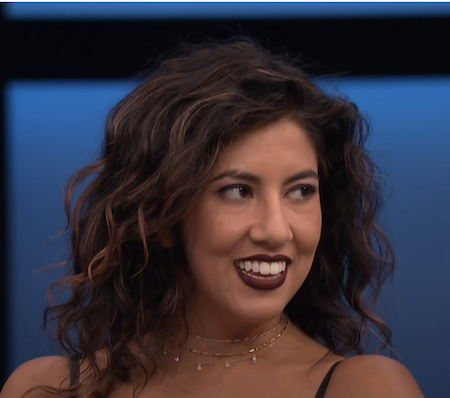
Beatriz’s tough-gal performance in her most famous role is especially admirable since she seems almost giddy in real life….
No one can shake the Powell-Loy pairing from its pedestal. Honestly, I wouldn’t want that. But if the remake is different enough, it’ll just feel like two very different takes on a brilliant novel, not a poor shadow of a classic film.
I’m eager to hear your dream pairings in the comments! If you’d like other posts on ideal casting, see my friend and podcast co-host Mike Gutierrez’s awesome guest post on Hitchcock remakes!

